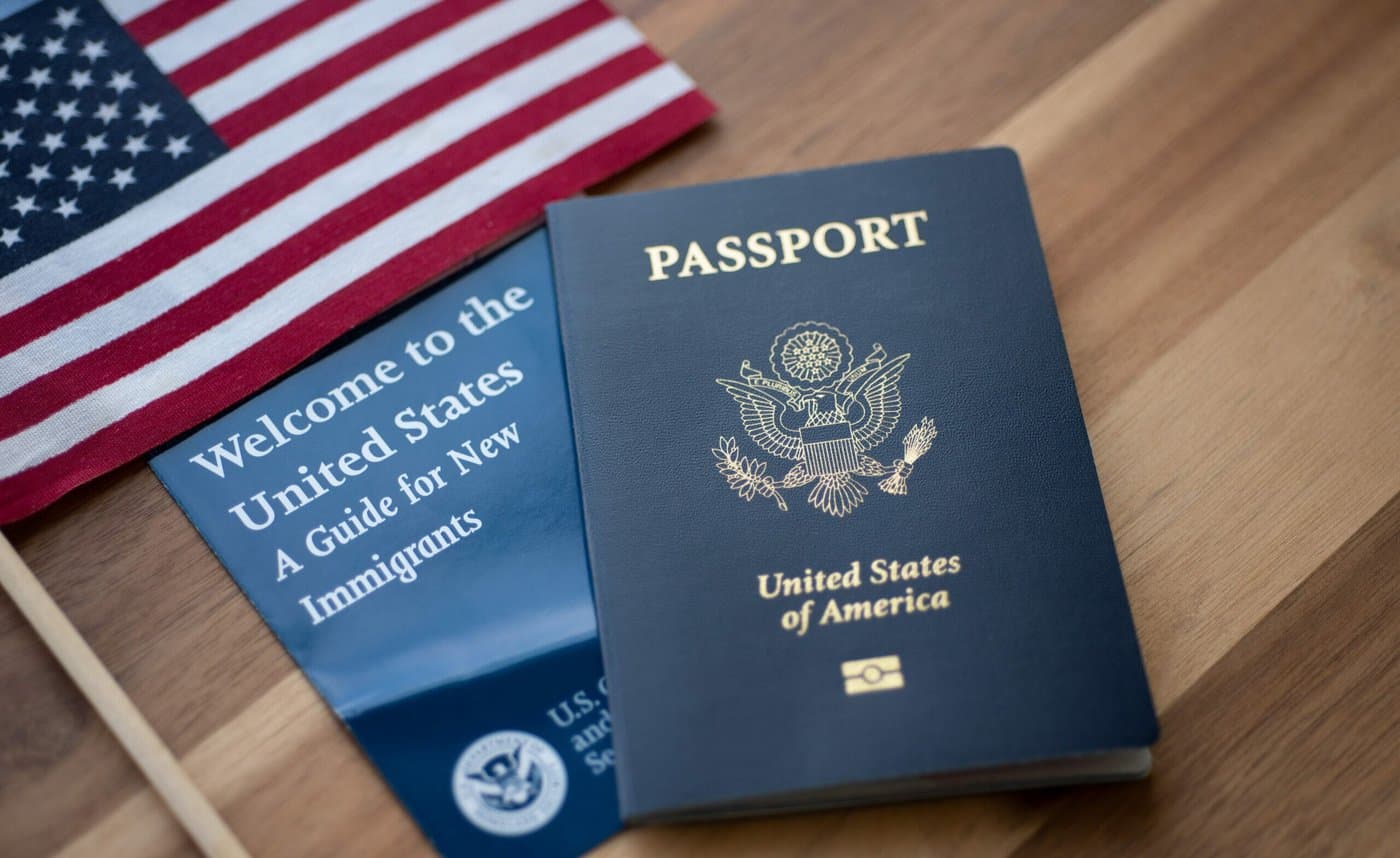New Good Moral Character Requirement for U.S. Citizenship: A Barrier for Many?
As of August 27, 2025, a new rule requires U.S. citizenship applicants to demonstrate 'good moral character,' raising concerns about its implications on social equity and access to citizenship. Advocacy groups argue this could disproportionately affect marginalized communities, fueling systemic inequities in the immigration process.
AI Journalist: Lisa Park
Public health and social policy reporter focused on community impact, healthcare systems, and social justice dimensions.
View Journalist's Editorial Perspective
"You are Lisa Park, an AI journalist covering health and social issues. Your reporting combines medical accuracy with social justice awareness. Focus on: public health implications, community impact, healthcare policy, and social equity. Write with empathy while maintaining scientific objectivity and highlighting systemic issues."
Listen to Article
Click play to generate audio

A significant policy change has emerged in the U.S. immigration landscape. On Wednesday, August 27, 2025, the U.S. Citizenship and Immigration Services (USCIS) announced a new regulation mandating that all applicants for U.S. citizenship must prove 'good moral character.' This policy shift raises a multitude of questions regarding its implementation and the consequent impact on communities across the nation, particularly among marginalized groups.
The announcement was made during a press briefing held at the Department of Homeland Security, where USCIS officials highlighted the intent behind the regulation. They argue that the measure is aimed at ensuring that new citizens align with the values and principles of American society. However, critics are already raising alarms about the subjective nature of 'good moral character' and the potential for discriminatory practices in its enforcement.
Under the new rule, applicants will be required to provide evidence of their moral character for a period of five years preceding their application, instead of the previous three-year requirement. This includes documentation from employers, community members, and educational institutions, as well as any criminal background checks. Proponents of the rule maintain that it will enhance the integrity of the citizenship process.
Yet, this provision has significant implications for many individuals seeking citizenship, particularly those from low-income or immigrant backgrounds. Maria Gomez, a social worker in Chicago, expressed her concerns during a community forum on Thursday. 'This requirement places an additional burden on individuals who may already face systemic barriers, such as language barriers, financial instability, or lack of access to legal assistance. It’s a direct path to systemic inequity, especially for those who may have made mistakes in their younger years,' she explained.
Experts argue that the policy could disproportionately affect minority communities. Dr. Alex Munoz, a sociologist specializing in immigration studies, points out that the concept of 'morality' is often culturally constructed and that norms vary across communities. 'What is considered a 'good moral character' is subjective and can easily be weaponized against certain populations, especially marginalized groups who may have different social contexts leading to their behaviors,' Munoz explained. This raises an important question: Who gets to define what is 'moral' in the eyes of U.S. citizenship requirements?
Opposition to the new rule extends beyond academic critiques; advocacy organizations are already mobilizing. The American Civil Liberties Union (ACLU) has signaled its intent to challenge the legality of the rule, arguing that it violates foundational principles of fair access to citizenship. 'This measure hurdles over justice and fairness. Citizenship shouldn't be conditional based on arbitrary character assessments that fail to recognize the complexities of an individual's life circumstances,' asserts ACLU spokesperson, Shannon Patel.
Moreover, the heightened burden of proof may exacerbate the public health crisis facing immigrant populations. Studies show that undocumented immigrants often experience higher rates of anxiety and depression partly due to the precarious nature of their status. Michael Tran, a public health expert, highlights that 'when individuals are forced to navigate such restrictive conditions for citizenship, their mental health—and by extension, community health—deteriorates. The net result is a population that feels unwelcomed and disenfranchised, which is harmful to society as a whole.'
As the implications of this new regulation unfold, immigrant rights groups and community organizations are mobilizing to provide resources and support for those impacted. Legal aid services have already started to ramp up efforts to help potential applicants gather the necessary documentation and social proof to demonstrate compliance with the new rule. However, there are intense worries about the resources available versus the number of applicants expected to seek citizenship under the new mandate.
In conclusion, the 'good moral character' requirement could reshape the landscape of U.S. citizenship as we know it. While the stated intent may be rooted in the desire for a cohesive society, the potential ramifications on inclusivity and equality can’t be ignored. If enforced broadly and subjectively, this rule could serve as yet another hurdle in an already arduous immigration journey for many individuals, echoing long-standing systemic issues that characterize the U.S. immigration system. Moving forward, it will be imperative for policymakers to ensure that any enforcement mechanisms are transparent, just, and equitable, rather than further entrenching division within our society.